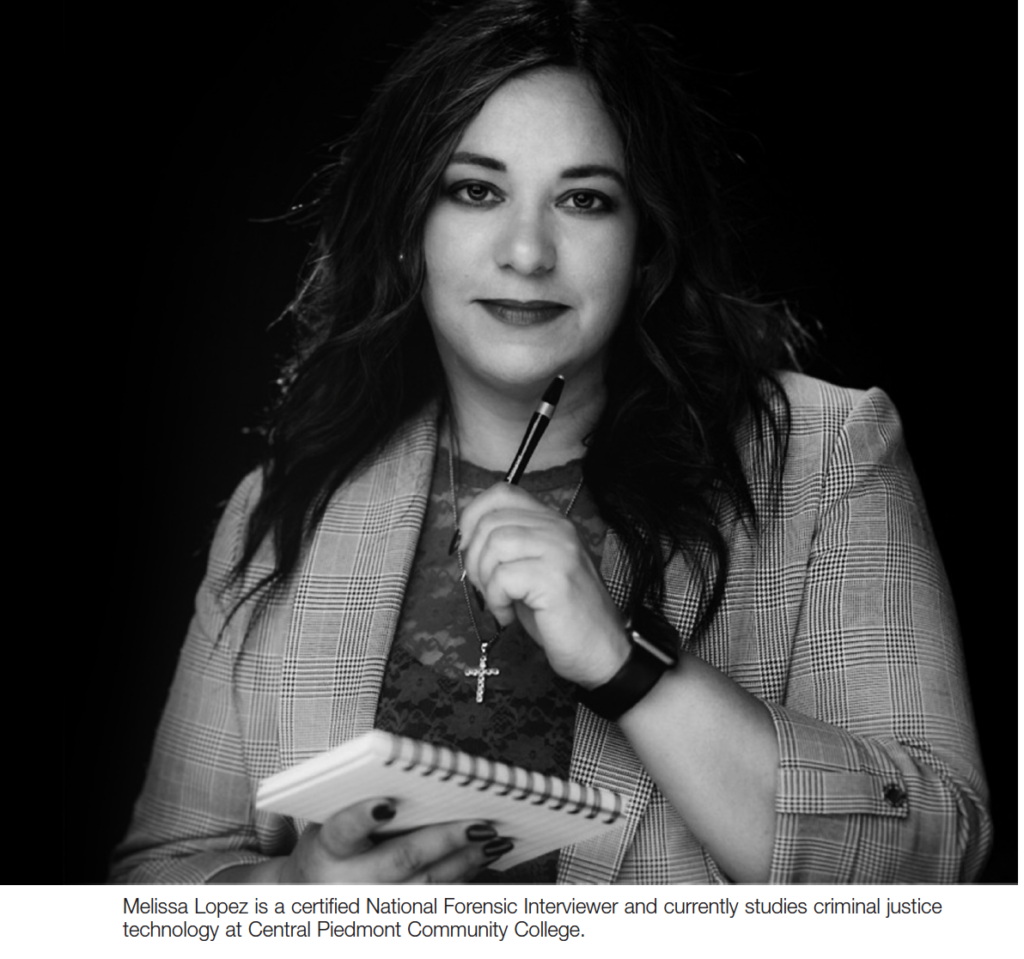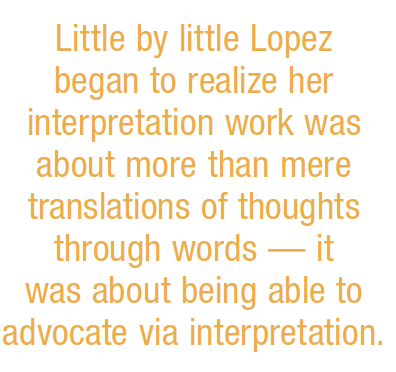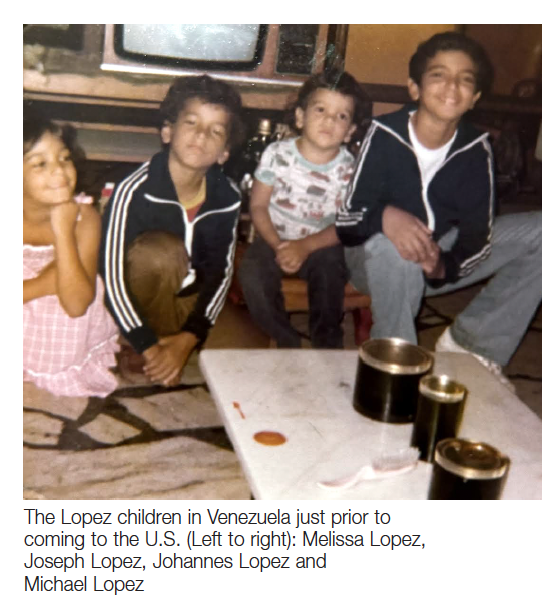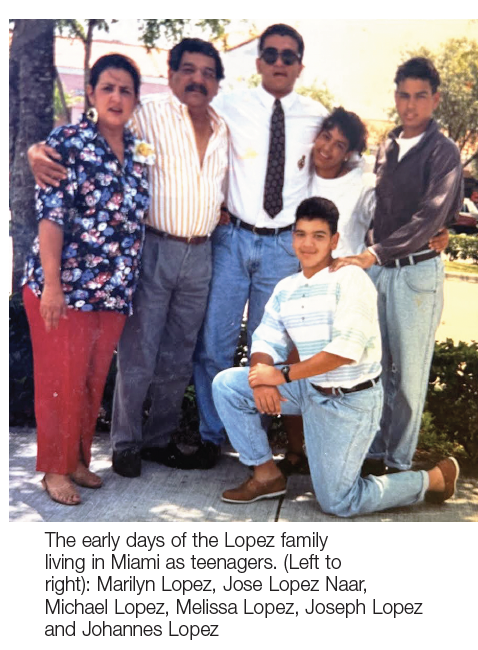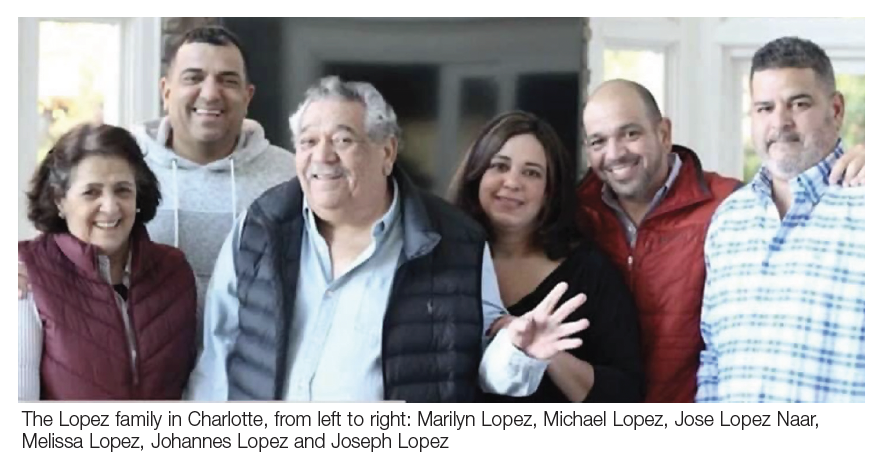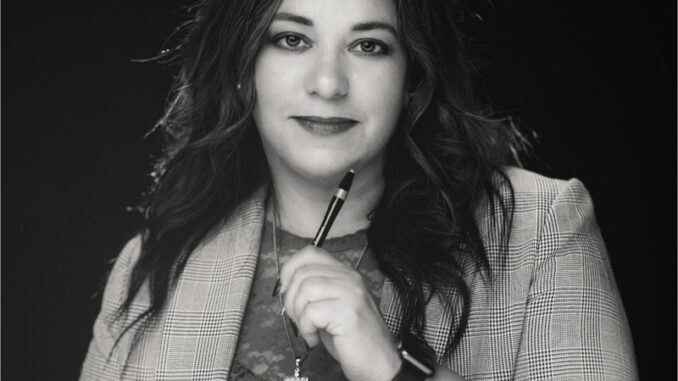
By John Burton Jr.
According to a 2020 U.S. Census report, 1 in 5 residents speak a different language other than
English in their household, and Spanish, Chinese, Arabic and Korean rank among the highest
languages used. Spanish has become the most common non-English language in America, with
41 million native speakers and 12 million bilingual Spanish speakers, hence, the need for
language interpreters in this country is great.
Venezuelan native Melissa Lopez has made language interpretation her life’s work to ensure the voices of Spanish speakers in Charlotte can be heard. Lopez immigrated to Miami, Florida from Venezuela with her parents and three brothers at the age of six, when her father, who worked
for a Venezuelan airline, relocated to America.
Although no one in her family could speak English before they came to the U.S., Miami’s
enormous Spanish-speaking population made Lopez’s transition untroublesome to navigate. Yet, her parents instilled in them that learning English and getting an education was important.
To instill a strong education ethic in their children while seeking to embrace their new American life, Lopez’s parents created a mandate.
“My parents insisted that we spoke in Spanish at home and English outside of the home,” she
said. This experiential learning would later benefit Lopez in multiple facets of her life. “This
allowed me to assist those who have a language barrier. This includes volunteer opportunities
for family, friends, and even jobs that required being bilingual,” said Lopez.
It wasn’t until she landed a role as a contracted Spanish interpreter for the Charlotte-Mecklenburg Police Department (CMPD) that Lopez admits she finally developed a passion for the work. Although she had assisted in numerous interpretations previously, none of
those experiences prepared her for the incident she declares changed her life forever.
In her initial assignment, working with CMPD’s Special Victims Unit, Lopez was told that she would be interpreting a suspect interrogation involving a child sex abuse case. After taking a deep breath, she entered an 8-by-10-feet wide room where the suspect sat handcuffed to table. Detectives began with an introduction, and then a four-hour interrogation ensued.“
“It was grueling, intense, mentally exhausting as it consisted of non-stop simultaneous
interpreting,” she said. “I wasn’t afraid. I remember just wanting to make sure that I did not miss
anything, as it pertained to a child that had experienced trauma,” she continued.
When it was over, Lopez professed it was difficult to endure but it was equally empowering to
know “we were fighting for this child,” she said. The work Lopez was conducting was forensic
interviewing, where recorded conversations are designed to elicit a child’s unique information
when there are concerns of possible abuse.
As she continued to provide interpreting services during forensic interviews, Lopez’s experiential
learning was shifting into something more — it was becoming a passion.
“The more I did it, the better I got,” she explained. Little by little Lopez began to realize her
interpretation work was about more than mere translations of thoughts through words — it was
about being able to advocate via interpretation. “Truthfully, it’s why I decided to continue on that
path,” Lopez said.
Still, Lopez candidly admits this work isn’t for the faint of heart.
“Being an interpreter is by far the greatest exercise for your brain,” she said. “Having to
accurately interpret, simultaneously, is exhilarating, gratifying and exhausting, all at the same
time.” She was unsure what to expect, but she continued to the job. Her path became clear, and
she continued to learn along the way.
By 2021, Lopez, a mother of four, knew what she wanted to do. She decided to become an
advocate as an interpreter and started her own interpreting firm called Language Liaison LLC.
now known as Bilingual FI Solutions LLC. Lopez soon landed a contract with Gaston County
as an interpreter, partnering with The Lighthouse Children’s Advocacy Center, Hope United
Survivor Network and the Cathy Mabry Cloninger Center: A Domestic Violence Shelter. Lopez
now has four contracts with different CAC’s offering Forensic Interviewing and Inpterpreting
services.
Lopez never lost sight of her parents’ focus on education. She shared with a colleague that she
wanted to be a forensic interviewer, but she did not have a college degree.
“I am almost 90 percent sure that you don’t need one,” her colleague responded.
But Lopez decided to enroll in college anyway. As a criminal justice technology major at Central
Piedmont Community College, she has learned to toggle between her interpreting work and her
homework. Later she hopes to obtain a bachelor’s and master’s degree in criminal justice with a
concentration in advocacy and social work. In September 2022, Lopez received her National
Forensics Interviewer Certification. She then received contracts to work with multiple child
advocacy centers as a bilingual forensic interviewer and interpreter.
One of her many goals is to eventually offer forensic interview services in Spanish and English
at child advocacy centers nationally to help make a difference in the lives of children affected by
trauma.
A life learner, advocate and entrepreneur, Lopez credits all she is to her Faith, family and
Forensic Interviewing. She knows that her steps are ordered by God.

